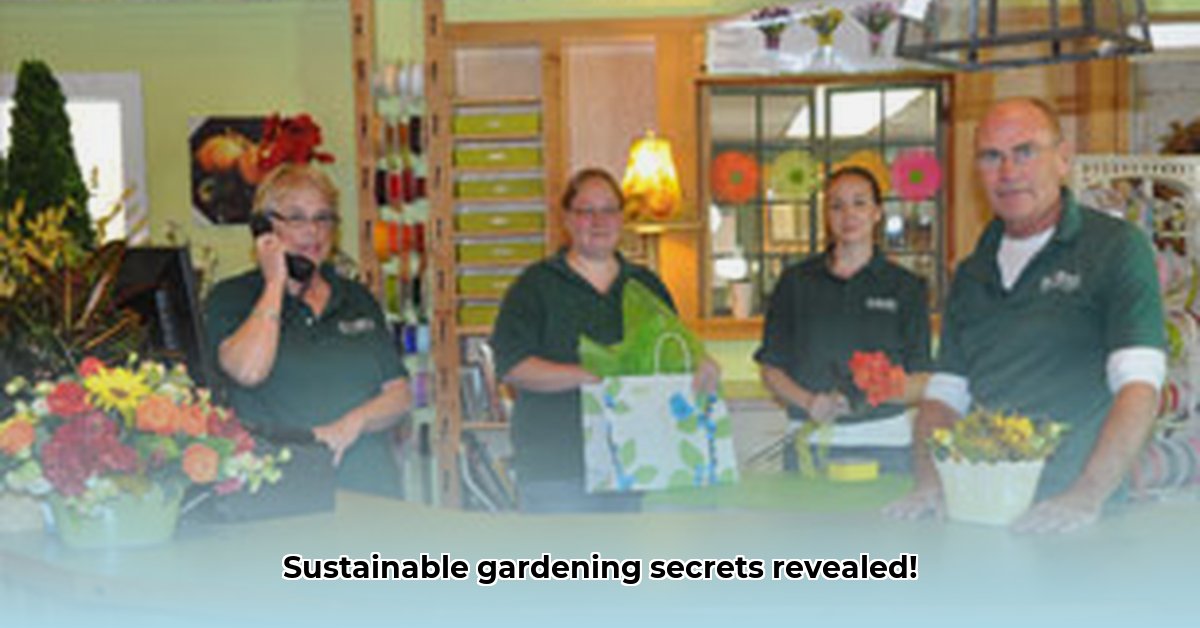
Cheshire Nursery and Garden Center: A Case Study in Sustainable Practices
Cheshire Nursery and Garden Center enjoys a strong reputation within its Connecticut community, evidenced by its loyal customer base and apparent success. Its website showcases a diverse selection of plants and gardening supplies, suggesting a thriving business. However, a comprehensive evaluation of its sustainability practices requires a deeper examination beyond surface-level observations. For comparison, see the sustainability practices of another local nursery. While the center's emphasis on locally sourced plants is commendable, a lack of publicly available data on its broader environmental performance creates an intriguing case study—one highlighting both opportunities and challenges.
Unpacking the Sustainability Story: Data Transparency as a Key Component
The garden center's commitment to sustainability lacks the quantified evidence typically associated with credible environmental claims. Key information regarding water usage, fertilizer and pesticide types, waste management strategies, and supply chain transparency remains elusive. This opacity isn't necessarily a failure; it represents a vital opportunity for improvement and underscores the need for greater transparency in the horticultural sector.
The Evidence Spectrum: What We Know and What We Don't
The available evidence falls short of providing a complete picture. While the center's emphasis on locally sourced plants reduces transportation emissions and supports the local economy—a significant positive—we lack detailed information on other crucial aspects of its operations. This gap in data highlights the need for a robust sustainability reporting framework.
What we know:
- Strong regional presence and customer loyalty: Suggests successful business practices.
- Emphasis on locally sourced plants: Contributes positively to environmental sustainability and local economies.
What we don't know:
- Precise water, energy, and fertilizer usage: These are vital indicators of environmental impact.
- Supply chain transparency: Information on the sourcing, transportation, and environmental practices of suppliers is lacking.
- Waste management strategies: Details on composting, recycling, and plastic waste reduction are unavailable.
- Employee training in sustainable gardening techniques: Assessing the role of human capital in sustainable practices is essential.
- Community engagement initiatives: Quantifiable data on community outreach programs promoting sustainable gardening is absent.
Actionable Intelligence: A Pathway to Sustainable Growth
The lack of quantifiable data presents a significant challenge in fully assessing Cheshire Nursery's sustainability. However, this lack of information also highlights critical areas for potential improvement and offers a valuable opportunity to establish best practices within the industry.
Recommendations for Enhanced Sustainability
The following recommendations are designed to guide Cheshire Nursery, the wider community, researchers, and consumers toward a more sustainable future for horticulture:
Cheshire Nursery and Garden Center: Conduct a comprehensive sustainability audit within the next year, publicly disclosing the findings to build trust and transparency. Within three to five years, develop a formal sustainability plan with measurable goals and targets, potentially seeking relevant certifications (e.g., organic certification) to bolster credibility.
Local Community: Actively support locally sourced products through community initiatives and events. Advocate for local policies that encourage sustainable gardening practices within the community over the next five years.
Researchers and Academics: Conduct research analyzing the economic and environmental performance of similar local businesses to establish benchmarks and best practices for sustainable horticultural operations. Develop industry-wide guidelines for sustainability reporting within the next three years.
Consumers: Support businesses demonstrating a commitment to transparency and sustainability. Actively engage with businesses by asking questions about their sustainability practices and advocating for environmentally friendly landscaping practices within their community.
Building a Greener Future: The Importance of Collaboration
Cheshire Nursery and Garden Center possesses the potential to become a leader in sustainable horticulture. By embracing transparency, adopting data-driven strategies, and fostering collaboration with the local community and researchers, it can transform its operations, setting a positive example for other businesses. This collaborative approach is crucial for achieving a truly sustainable future for local garden centers while minimizing their overall environmental impact. The journey toward a greener future begins with a commitment to open communication, data-driven decision-making, and collective action.